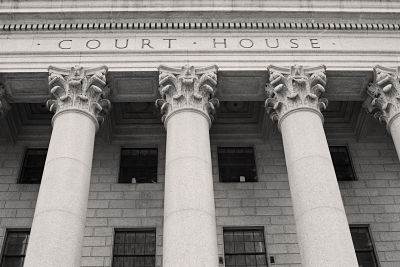The right to a jury trial is fundamental to our criminal justice system. Having an impartial, unbiased jury is especially crucial in cases involving alleged sex crimes and sex offenses. By their very nature, these charges are deeply emotional and understandably provoke a sympathetic reaction in favor of the accusers. As a result, judges must take great care in ensuring a jury is not tainted with any preexisting bias in favor of the prosecution.
Defendant May Be Entitled to New Trial Based on Juror’s Undisclosed Past
A recent decision from the Texas Seventh District Court of Appeals in Amarillo, Standerfer v. State, highlights the importance of this principle. A Wheeler County jury previously convicted the defendant of indecency with a child by sexual contact, a felony under Texas law. After the jury’s verdict, the defendant asked the judge for a new trial, in part because information came to light that cast doubts on the impartiality of one of the jurors.
The defendant’s wife happened to be a county attorney. One of her clients inquired as to why a particular juror was selected for her husband’s trial. The client said the juror’s sister-in-law told them that the juror “had been molested by her mother’s boyfriend” when she was a child. An investigator retained by the defense later made efforts to contact the juror and her family about these allegations at the time, but none of them cooperated.

The defendant’s trial attorney argued that had he known about this juror’s past, he would have challenged her for cause or used a peremptory strike to keep her off the jury. Indeed, during the questioning of potential jurors, the prosecutor asked if anyone who “themselves were sexually abused or assaulted as a child.” Several jurors responded, but not the juror in question.
The trial court ultimately denied the defense’s motion for a new trial. The Seventh District, however, held that decision was premature. It returned the case to the trial court for a hearing on the issue. As the appeals court explained, the defense presented sufficient evidence to create “reasonable grounds” suggesting there was juror bias. Critically, the appeals court did not find there was bias–in fact, much of the evidence described above would constitute hearsay at best. But given all this, the appeals court said the trial judge needs to further develop the record. If the judge holds a hearing and still decides the defendant is not entitled to a new trial, the defense can resume its appeal.
Speak with a Houston Sex Crimes Defense Lawyer Today
A jury trial is meaningless if the jurors are not impartial. This means they must only look at the evidence presented in court and not allow their own pre-existing biases or prior experiences to influence their verdict in any way. The purpose of questioning potential jurors beforehand is to screen for actual or potential bias, and in that way ensure the defendant receives a fair trial.
An experienced criminal defense attorney can provide you with further guidance and advice in this area. If you have been charged with a sex crime or sex offense and need representation, contact the Law Offices of Tad Nelson & Associates in Houston, Galveston or League City today. Call (281) 280-0100.